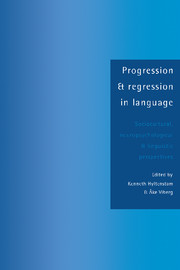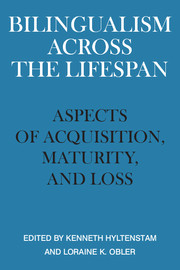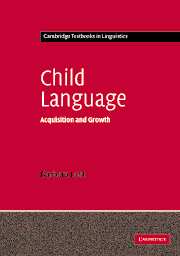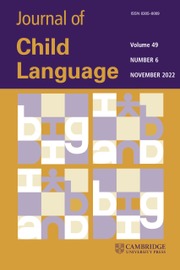Progression and Regression in Language
This crosslinguistic collection looks at changes and developments in language known as progression and regression. The processes are examined and compared at the societal and individual level. In the former, the focus is on the socio-cultural forces that influence groups of speakers to create new languages or abandon old ones. In the latter, the acquisition and attrition of first and second languages are considered. The theoretical issues around this topic are addressed from sociological, neuropsychological and linguistic perspectives.
- Latest in CUP batch of books on bilingualism
- Growing fields of bilingualism and language progression/regression are of interest to linguists in many different specialisms
- Hyltenstam well-known as head of Bilingualism Centre. Contributors European and American, many Press authors
Product details
January 1994Paperback
9780521438742
502 pages
229 × 152 × 26 mm
0.67kg
Available
Table of Contents
- Part I. Introduction:
- 1. Linguistic progression and regression: an introduction Kenneth Hyltenstam and Åke Viberg
- Part II. The Sociological Setting:
- 2. The role of pidgin and creole languages in languages progression and regression Peter Mühlhaüsler
- 3. Structure and practice in language shift Jane Hill
- 4. Growing up monolingual in a multilingual community: how language socialisation patterns are leading to language shift in Gapun (Papua New Guinea) Don Kulick
- 5. Language change in a creole continuum: decreolisation? Charlene Sato
- Part III. Psycho- and Neurolinguistic Aspects:
- 6. Neurolinguistic aspects of first language acquisition and loss Jean Berko Gleason
- 7. Neurolinguistic aspects of second language development and attrition Loraine K. Obler
- 8. Second language acquisition as a function of age: research findings and methodological issues
- 9. Second language regression Alzheimer's dementia Kenneth Hyltenstam and Christopher Stroud
- Part IV. The Linguistic Perspective:
- 10. Crosslinguistic perspectives on native language acquisition Ruth Berman
- 11. Syntactic development in Danish L2 Anne Holmen
- 12. The weaker language in bilingual Swedish–French children Suzzane Schlyter
- 13. Four operating principles and input distribution as explanations for underdeveloped and mature morphological systems Roger Andersen
- 14. Crosslinguistic perspectives on lexical organisation and lexical progression Åke Viberg
- 15. Attrition or expansion? changes in the lexicon of Finnish and American adult bilinguals in Sweden Sally Boyd
- Part V. The Linguistic Perspective 2: Phonology:
- 16. The development of phonological abilities Henning Wode
- 17. The course of development in second language phonology acquisition: a natural path or strategic choice? Bjorn Hammarberg
- 18. Sociolinguistic factors in loss and acquisition of phonology Roy C. Major
- Index.










